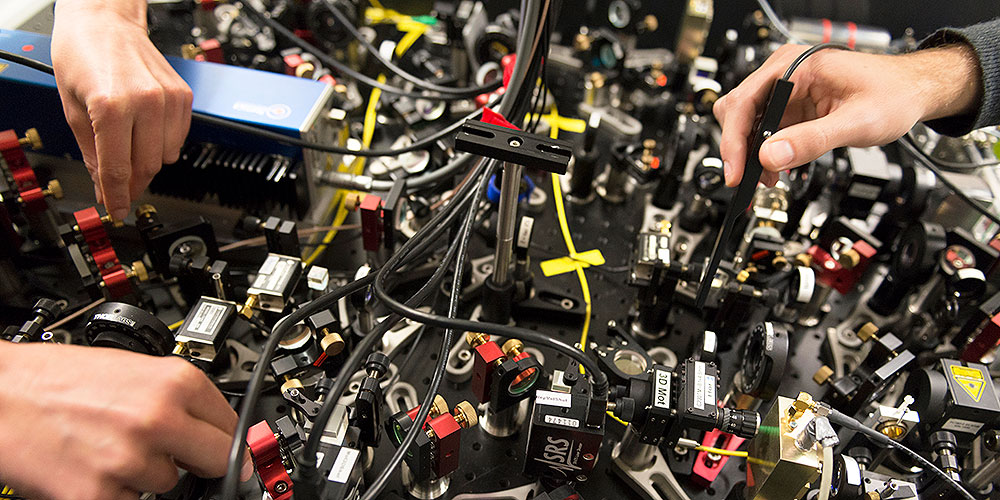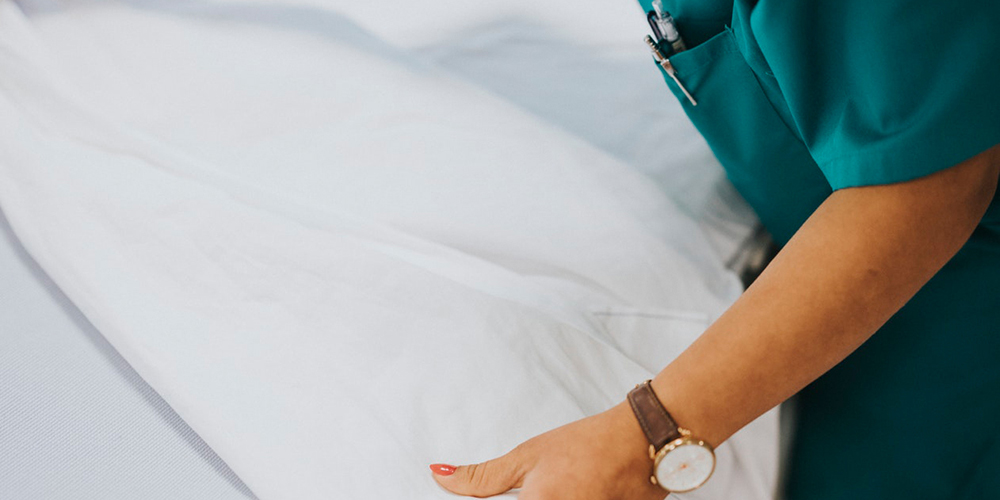Combining an atomically thin graphene and a boron nitride layer at a slightly rotated angle changes their electrical properties. Physicists at the University of Basel have now shown for the first time the combination with a third layer can result in new material properties also in a three-layer sandwich of carbon and boron nitride. This significantly increases the number of potential synthetic materials, report the researchers in the scientific journal Nano Letters.
The international doctoral program “QUSTEC” will be established at the European Campus.

The new Institute of Molecular and Clinical Ophthalmology Basel (IOB) from the University of Basel, University Hospital Basel and Novartis is gaining a new professor: Carlo Rivolta has been appointed Full Professor.
Using notes made by the attending healthcare professionals about psychiatric patients enables impending coercive measures to be predicted in advance – potentially even through automated text analysis.

Seven years after the introduction of flat-rate payments at Swiss hospitals, a major study has revealed a slight increase in readmission rates. Researchers from the University of Basel and the Cantonal Hospital of Aarau reported the findings in the journal JAMA Network Open.

Those who set realistic goals can hope for a higher level of well-being, as psychologists from the University of Basel report in a study with over 970 participants.

People are evidently no good at predicting their own happiness or unhappiness: key life events such as marriage, invalidity or the death of a partner affect well-being for less time than those affected think.

Physicists from the University of Basel have developed a new method to examine the elasticity and binding properties of DNA molecules on a surface at extremely low temperatures. With a combination of cryo-force spectroscopy and computer simulations, they were able to show that DNA molecules behave like a chain of small coil springs.
Tumor cells use a certain type of immune cells, the so-called neutrophils, to enhance their ability to form metastases. Scientists have deciphered the mechanisms of this collaboration and found strategies for blocking them. This is reported by researchers from the University of Basel and the University Hospital of Basel in the scientific journal “Nature”.
